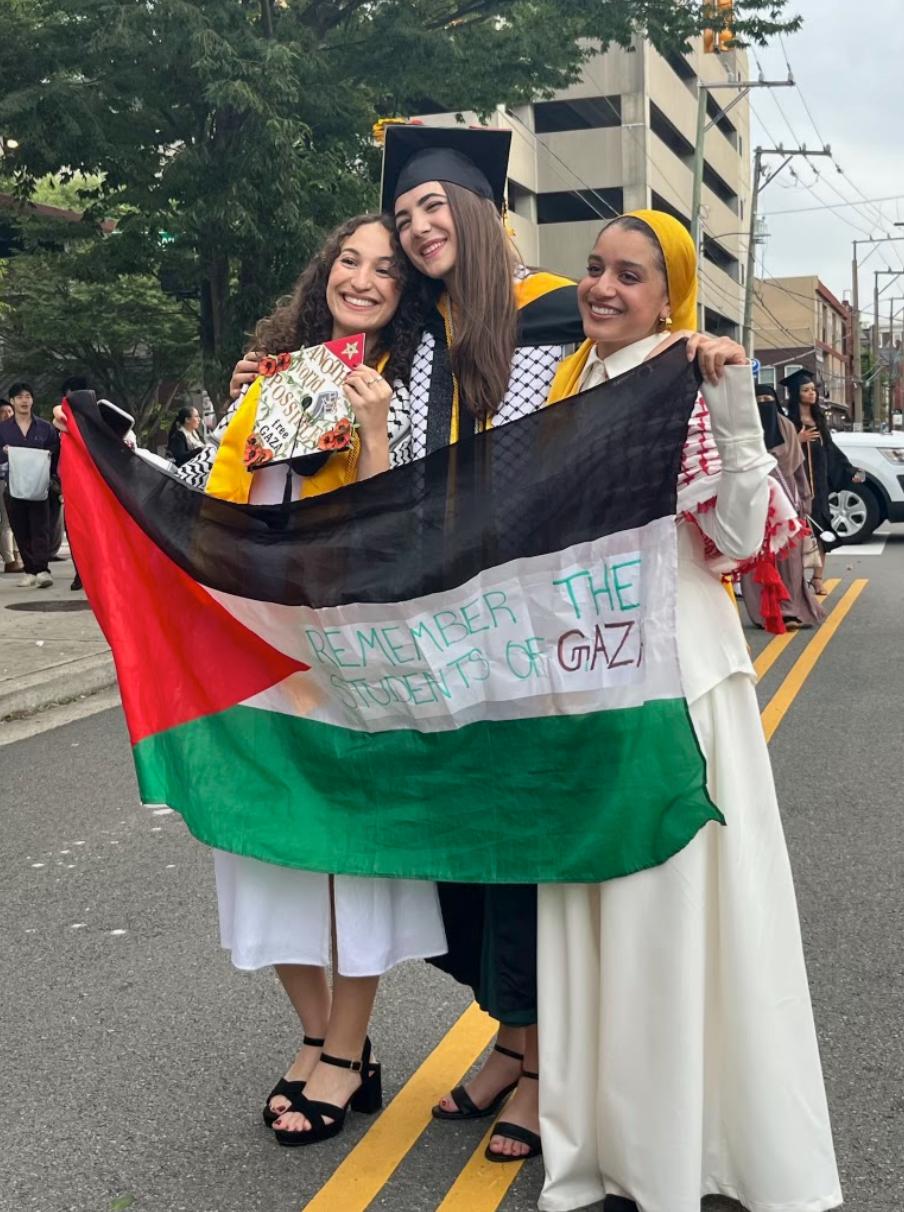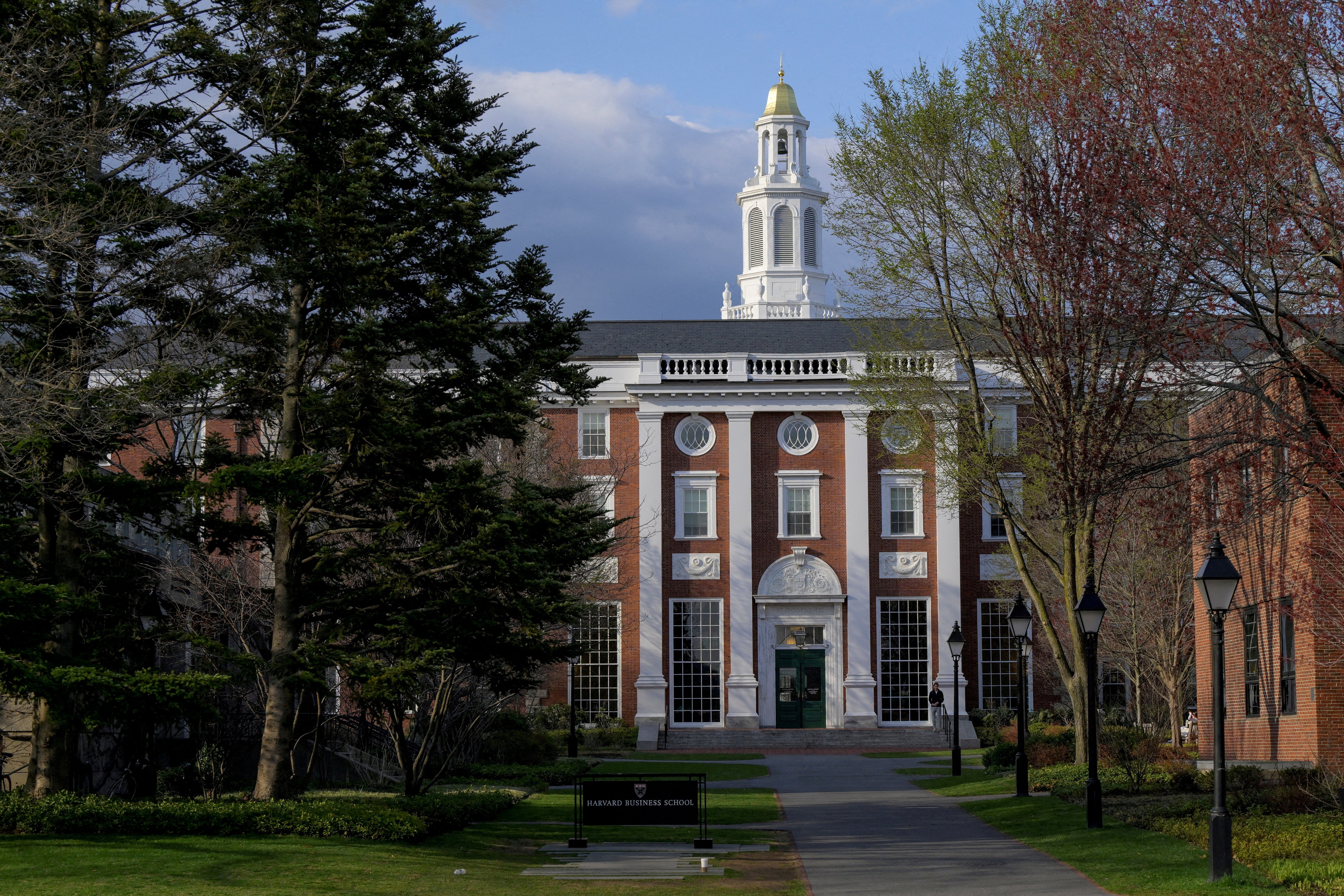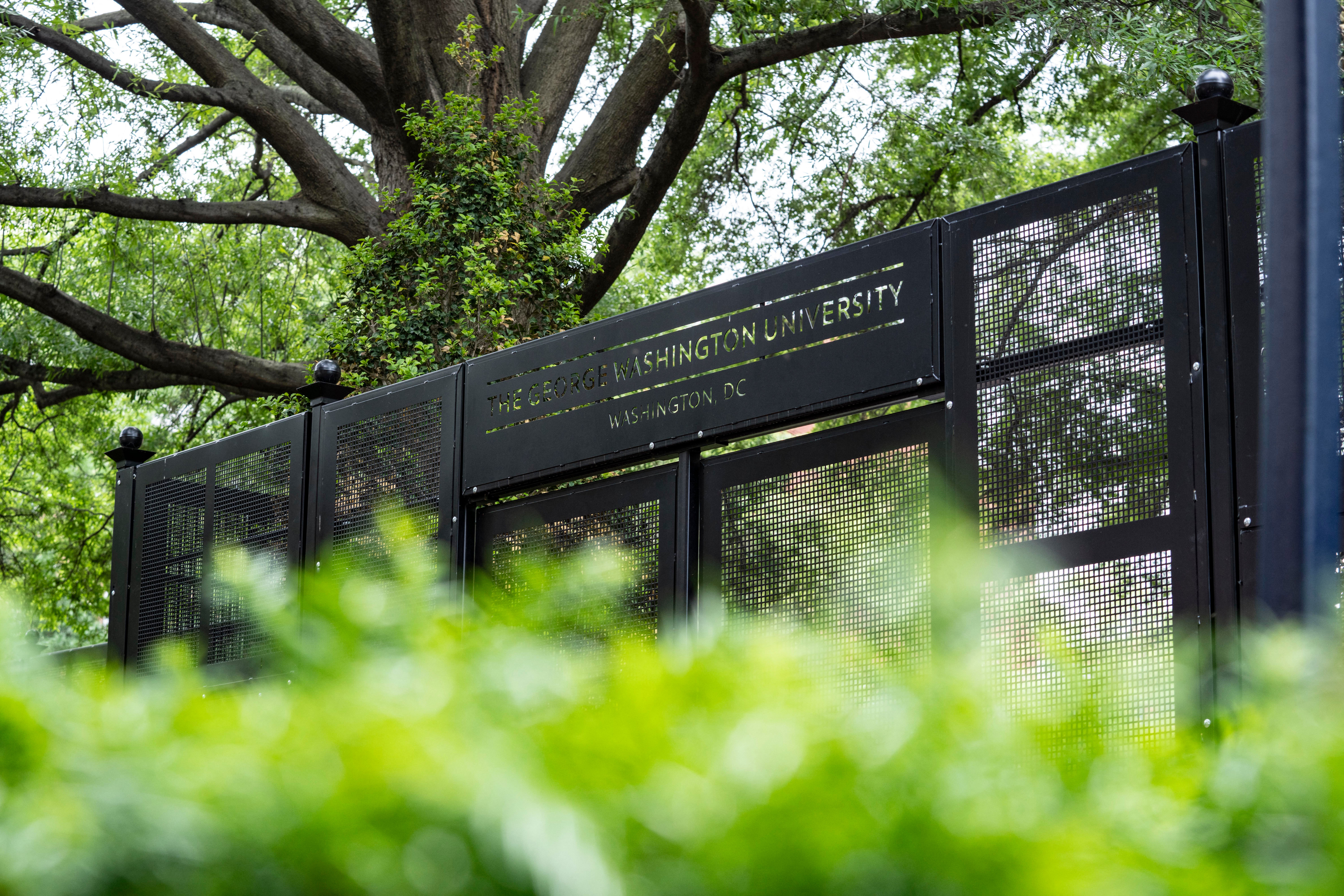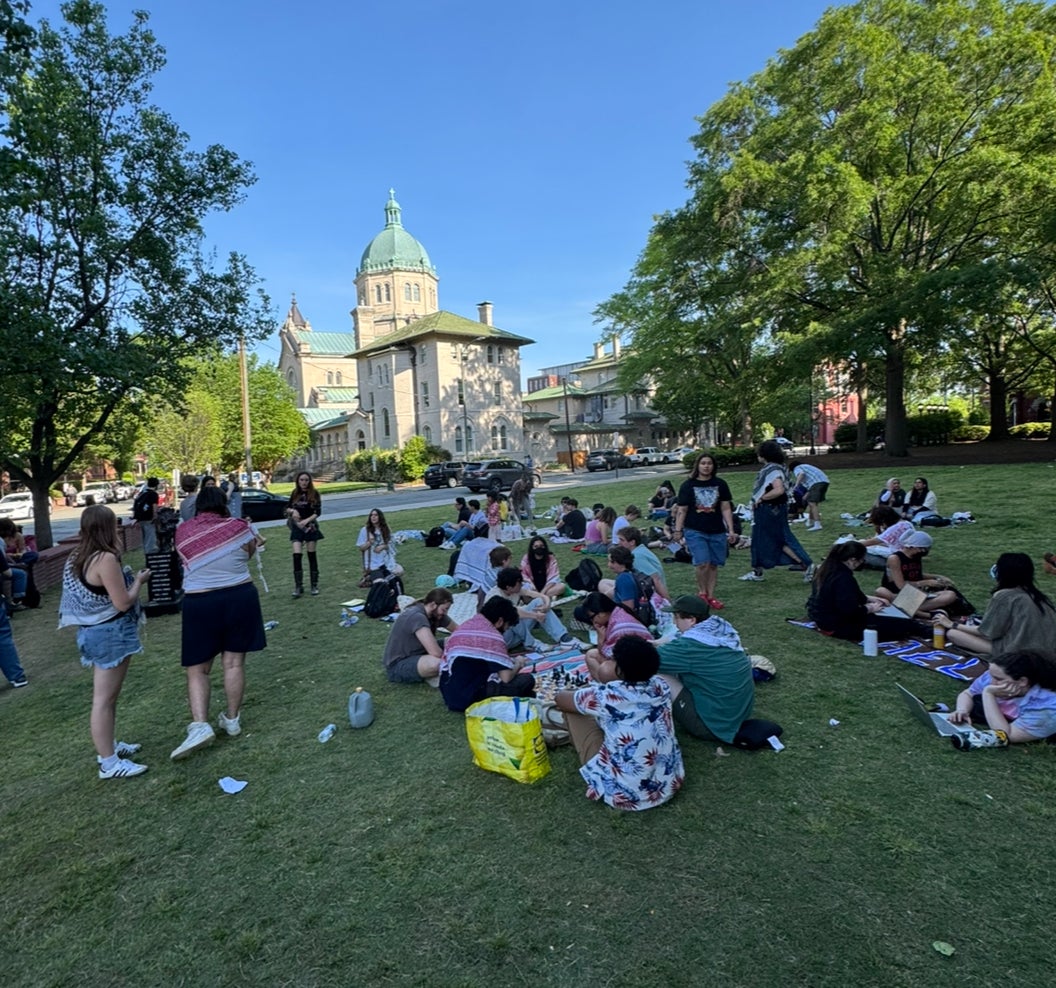ARTICLE AD BOX
With graduation season underway, universities across the country are taking action against anti-Israel and pro-Palestinian activists who speak out at commencement ceremonies and during the final weeks of classes, in some cases threatening to withhold their degrees.
Administrators accuse the students of breaking campus rules and marring graduation festivities, while activists say the punishments are the latest way school officials are demonizing pro-Palestinian views and repressing students’ rights to political expression.
The controversy all happens in the long shadow of the Trump administration, which has stripped universities like Harvard and Columbia of millions in federal funds over alleged failures to stop antisemitism during the protests, while detaining campus activists and revoking the student visas of non-citizens involved in the Palestinian cause.
At Virginia Commonwealth University, two students’ diplomas are on hold after they took part in a modest gathering in late April that the school says was not permitted.
VCU senior Selma Ait-Bella, 21, one of the students facing discipline, described the situation to The Independent as a massive overreaction meant to deter future activism.
“They’re using these bureaucratic methods to scare other students,” the sociology major said.
“If we’re paying thousands of dollars to go to this university, get an education, and build a community, if they can take that away, for speaking out against a genocide, it leaves everybody feeling like their situation is increasingly precarious.”

The campus action began on April 29, the last day of classes, she said. A group of about 40 students gathered informally to sit and talk on a lawn, marking a year since a multi-agency group of riot police used pepper spray, and tear gas to clear a student Palestinian protest encampment, while authorities and school officials say protesters threw objects and used chemical spray on officers.
This time around, there weren’t any speeches or chants or tents, though the participants did use cloth protest banners from past events as picnic blankets.
Eventually, school officials and police arrived, telling the group the gathering wasn’t allowed, but that they could relocate to a campus “free speech zone,” Ait-Bella said. Organizers began telling students to leave, fearing another police crackdown.
However, in the ensuing confusion, some remained. A student holding a sign that read, ‘Gonna us again, you f***ing monsters’ was eventually arrested, Ait-Bella said.
The Independent has contacted the VCU administration and police department for comment.
Ait-Bella was able to walk in VCU’s commencement this month, but her degree is on hold, pending an investigation.
The situation has left her with unanswered questions beyond her grad status. Will she be able to travel freely? Will she be able to get a job? Will she or her parents, Moroccan immigrants, face any repercussions, given the Trump administration’s immigration dragnet? Still, she knew the risks she was incurring by being an activist, and says she doesn’t regret taking them now.
“Everybody that is a part of this movement understands there is something to risk,” she said, adding, “I’m willing to do it again.”

For many involved in the campus push, the status quo is a risk, too. The other VCU student whose diploma is in limbo, Sereen Haddad, is a Palestinian-American who has lost over 200 family members in the conflict.
“My activism isn’t a choice—it’s a duty,” Haddad told The Independent. “As a Palestinian, I carry generations of resistance in my blood. I’ve watched my people be dehumanized, displaced, and massacred while the world turns its back...I will never be silent while this is happening.”
Clashes have also taken place over commencement ceremonies themselves. Two people were arrested this week at Columbia, where protesters booed the university president, burned diplomas, and shoved police, just weeks after over 70 were detained for occupying a library in the run-up to semester finals.
Across town, at the May 14 ceremony for New York University’s Gallatin liberal arts program, student-selected speaker Logan Rozos used his brief remarks to address the war as well, which has killed over 1,000 Israelis and over 61,000 Palestinians, according to their respective governments, stretching into a brutal stalemate in which the Israeli government is accused of blocking aid and causing mass starvation in Gaza.
The conflict was sparked by the bloody Oct. 7, 2023 incursion into Israel of Hamas terror squads who slaughtered over 1,200 Israelis and kidnaped about 250, taking them back into Gaza.
Rozos, a filmmaker and actor, told the crowd he had been “freaking out” about what to say, but ultimately concluded, “My moral and political commitments guide me to say that the only thing that is appropriate to say is in this time and to a group this large is a recognition of the atrocities currently happening in Palestine.”

His remarks were met with some cheers from the crowd, but the school swiftly condemned Rozos for having “stolen” the moment by sharing “one-sided political views.”
“He lied about the speech he was going to deliver and violated the commitment he made to comply with our rules,” the school said in a statement. “The University is withholding his diploma while we pursue disciplinary actions.”
The Independent has contacted Rozos and NYU for further comment.
Outside reaction was split, with groups like the Anti-Defamation League claiming Ross made Jewish students uncomfortable with “rhetoric that promotes harmful lies about Israel,” while some faculty members criticized the administration for what they saw as a heavy-handed attempt to avoid scrutiny from Trump.
“They are bending over backward to crack down on speech that runs counter to what the current administration in Washington espouses,” Andrew Ross, a professor of social and cultural analysis, told ABC News.

Even for those who have already graduated are feeling the consequences.
Three days after Rozos’s speech, George Washington University graduate Cecilia Culver, who received her degree in December, told a commencement crowd to “withhold donations and continue advocating for disclosure and divestment” of ties between the university and Israel.
“I am ashamed to know my tuition is being used to fund this genocide,” she told a crowd of about 750.
The school soon announced that Culver was banned from its campuses and events, saying she had been “inappropriate and dishonest” and veered from pre-rehearsed remarks.
In an interview with the school paper, the economics and statistics grad said she had no regrets, either.
“There was just never any point where I was not going to say something,” she told The GW Hatchet.
Culver declined a request for comment from The Independent.
She has retained legal representation from Palestine Legal, which has defended her remarks.

“Students are harbingers of how future generations will view this historical moment and the role of universities in it,” the group said in a statement to The Washington Post. “History will celebrate principled students like Logan Rozos at NYU and our client Cecilia Culver at GWU.”
Whatever history thinks of these students, the institutional conflict over how to treat them shows no signs of abating, even as the school year comes to a close.
On Thursday, Trump’s feud with Harvard escalated, with the administration attempting to pull the university’s ability to enroll any international students, the same day a federal court in California temporarily barred the administration from the revoking visas of a wide swathe of international students.
Even after all the lawsuits, investigations, dueling protests, and immigration arrests on campus, there are those like Ait-Bella and Haddad determined to keep sharing their perspective on campus, come what may.
People in Gaza are starving and eating grass, with children writing their wills and parents writing their names on their arms so their bodies can be identified if they get bombed in their sleep, Haddad says.
“Compared to that, what do I have to fear?” she said. “If you’re someone staying silent, I ask you—who is your silence benefitting? It’s not the people under the rubble.”










 English (US) ·
English (US) ·